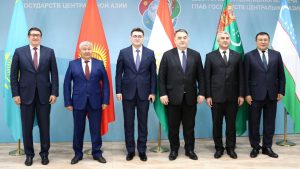Energy has always been a critical topic in Central Asia, which renders it perhaps surprising that it was only on August 6, 2024, that the region’s energy minister met together in Astana and signed a joint communique.
Kazakhstan’s Ministry of Energy in a press release called the meeting the “first” among the region’s energy ministers. In framing the meeting, Kazakhstan’s Minister of Energy Almasadam Satkaliyev said, “Fluctuations in oil and gas prices and other factors lead to uncertainty in energy supplies, which historically guarantees regional and national socio-economic stability. To ensure the security of energy supplies, it is necessary to develop mechanisms for forecasting and managing these challenges, as well as to strengthen cooperation between our countries.”
According to Orda.kz, the joint communique signed after the meeting stated that the parties would “continue to strengthen cooperation and expand opportunities for energy trade, and stimulate the development of modern energy infrastructure.”
Satkaliyev chaired the gathering and was joined by Kyrgyz Minister of Energy Talaibek Ibraev, Tajikistan’s Minister of Energy and Water Resources Daler Juma, Uzbekistan’s Minister of Energy Jurabek Mirzamakhmudov, and Azerbaijan’s Deputy Minister of Energy Orkhan Zeynalov.
Although some media reports stated that Turkmen Minister of Energy Annageldi Saparov was in attendance, others noted that it was actually the country’s ambassador to Kazakhstan who represented Turkmenistan at the meeting (and from the group photo it does appear that Ambassador Batyr Rejepov represented Turkmenistan).
The meeting of the region’s energy ministers came days ahead of the sixth Consultative Meeting of the Heads of State of Central Asia, scheduled to take place August 9 in Astana.
Joint projects and cooperative opportunities got top billing in the meeting. Satkaliyev noted Kazakhstan’s efforts, in cooperation with Azerbaijan and Uzbekistan. In May, the three countries signed a memorandum on linking their energy systems.
Satkaliyev also reportedly noted active discussions with Kyrgyzstan and Uzbekistan regarding the construction of the Kambar-Ata-1 hydroelectric power plant (HPP). In January 2023, the three countries signed a roadmap for the project and in June 2024, they reportedly signed “an agreement to prepare for the construction and operation” of the proposed dam.
Beyond Kazakhstan’s projects, an important effort to track is Tajikistan’s ambition to reconnect to the Central Asian Integrated Power System (IPS or CAPS), which it announced in late May. Dushanbe disconnected from the system in 2009.
In 2018, the Asian Development Bank (ADB) approved a $35 million grant to help reconnect Tajikistan’s electricity system to CAPS via Uzbekistan. But approvals and final outcomes can be quite distant cousins. As Peter Krasnopolsky wrote for The Diplomat last month, “Tajikistan’s intention to reconnect to the common power system, whether it takes place this summer or is postponed again, offers a strong indication of the realization by Central Asian leaders that the region’s potential can only be achieved through cooperation.”
In its readout of the recent meeting of energy ministers, Tajikistan’s Ministry of Energy noted that in his remarks, Juma “stated that in order to increase the reliability of the region’s energy system, a project on ‘Reconnection of the energy system of Tajikistan to the Unified Energy System of Central Asia’ is currently being implemented, within the framework of which, at the beginning of June of this year, the energy system of the southwestern part of Tajikistan was connected to the energy system of the Central Asian Unified Energy System.”
Other topics broached included “smart” power grids, electricity storage, a gradual energy transition, and further areas for joint projects, particularly the gas industry. The parties reportedly agreed to established an energy dialogue, which includes the creation of a working group and continued regular meetings of energy officials.

































